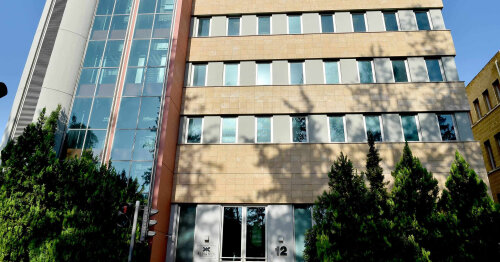Best Asylum Lawyers in Malta
Share your needs with us, get contacted by law firms.
Free. Takes 2 min.
Or refine your search by selecting a city:
List of the best lawyers in Malta
About Asylum Law in Malta
Asylum law in Malta is designed to protect individuals who are seeking refuge due to a well-founded fear of persecution in their home country. This may be due to race, religion, nationality, membership in a particular social group, or political opinion. Malta, as a member of the European Union, follows the Common European Asylum System, which provides a standardized process for handling asylum requests. The office responsible for these processes is the Maltese Refugee Commissioner, which oversees the application procedure, interviews, and decisions on asylum applications.
Why You May Need a Lawyer
Navigating the asylum application process can be complex and overwhelming, especially for those not familiar with the legal requirements and procedures in Malta. Common situations where legal assistance may be beneficial include:
- Understanding the criteria and process for applying for asylum.
- Handling appeals if an asylum application is rejected.
- Dealing with detention or deportation issues.
- Clarifying rights and obligations under Maltese and EU asylum laws.
- Addressing matters related to family reunification for asylum seekers.
Local Laws Overview
Malta's asylum laws align with EU regulations but also incorporate local legislation particular to the country's context. Key aspects include:
- An initial assessment and interview conducted by the Refugee Commissioner.
- The possibility of being granted refugee status or subsidiary protection.
- Specific time frames within which decisions should be made, often subject to delays.
- The right to appeal a negative decision to the Refugee Appeals Board.
- Provisions for detention in certain cases, although this practice is subject to strict legal conditions and oversight.
Frequently Asked Questions
1. What is the first step to apply for asylum in Malta?
To apply for asylum, you must register your intent to seek refuge with the Refugee Commissioner as soon as possible after arriving in Malta.
2. How long does the asylum process take in Malta?
The process can vary, but Maltese law aims to complete the initial asylum procedure within six months. However, delays are common due to high volumes of applicants.
3. Can I work while my asylum application is being processed?
Asylum seekers in Malta may access the labor market after nine months from lodging their application, provided they have not received a final negative decision.
4. What happens if my asylum application is rejected?
If your application is rejected, you have the right to appeal to the Refugee Appeals Board. Legal help is advisable during this stage to ensure all relevant information is properly presented.
5. Are there any rights to healthcare or education while seeking asylum?
Asylum seekers are entitled to basic healthcare services and children have the right to education under the same conditions as Maltese nationals.
6. Is there legal aid available for asylum seekers?
Yes, legal aid may be available for asylum seekers, especially during the appeals process, depending on their financial situation.
7. Can family members join me in Malta if I am granted asylum?
Reunification for family members is possible under certain conditions once you are granted refugee status or subsidiary protection.
8. Is it possible to reapply for asylum after a negative decision?
Reapplying is generally not allowed unless new, substantial information comes to light that could affect the outcome of the application.
9. What if I lose my documents upon arrival in Malta?
Inform the authorities immediately. Efforts will be made to verify your identity through other means, but it may affect the speed of the process.
10. How can I ensure fair treatment during the application process?
Understanding your rights and seeking timely legal guidance can help ensure fair treatment throughout the asylum process.
Additional Resources
For more information and assistance, consider reaching out to the following resources:
- The Office of the Refugee Commissioner: The primary body handling asylum applications in Malta.
- UNHCR Malta: Provides guidance and support for asylum seekers and refugees.
- Jesuit Refugee Service Malta: Offers legal assistance and support services for migrants and asylum seekers.
- aditus foundation: An NGO focusing on human rights with specific services for asylum seekers.
Next Steps
If you believe you require legal assistance or wish to begin the asylum process, consider the following steps:
- Contact a lawyer specializing in asylum laws to discuss your circumstances and obtain personalized assistance.
- Gather any documents or evidence relevant to your asylum claim.
- Speak with aid organizations that provide legal and humanitarian assistance to asylum seekers in Malta.
Understanding and navigating the asylum process in Malta can be challenging, but with the right information and support, you can access the protection you need. If you are uncertain about any aspect of your situation, do not hesitate to seek professional legal guidance.
Lawzana helps you find the best lawyers and law firms in Malta through a curated and pre-screened list of qualified legal professionals. Our platform offers rankings and detailed profiles of attorneys and law firms, allowing you to compare based on practice areas, including Asylum, experience, and client feedback.
Each profile includes a description of the firm's areas of practice, client reviews, team members and partners, year of establishment, spoken languages, office locations, contact information, social media presence, and any published articles or resources. Most firms on our platform speak English and are experienced in both local and international legal matters.
Get a quote from top-rated law firms in Malta — quickly, securely, and without unnecessary hassle.
Disclaimer:
The information provided on this page is for general informational purposes only and does not constitute legal advice. While we strive to ensure the accuracy and relevance of the content, legal information may change over time, and interpretations of the law can vary. You should always consult with a qualified legal professional for advice specific to your situation.
We disclaim all liability for actions taken or not taken based on the content of this page. If you believe any information is incorrect or outdated, please contact us, and we will review and update it where appropriate.
Browse asylum law firms by city in Malta
Refine your search by selecting a city.

















